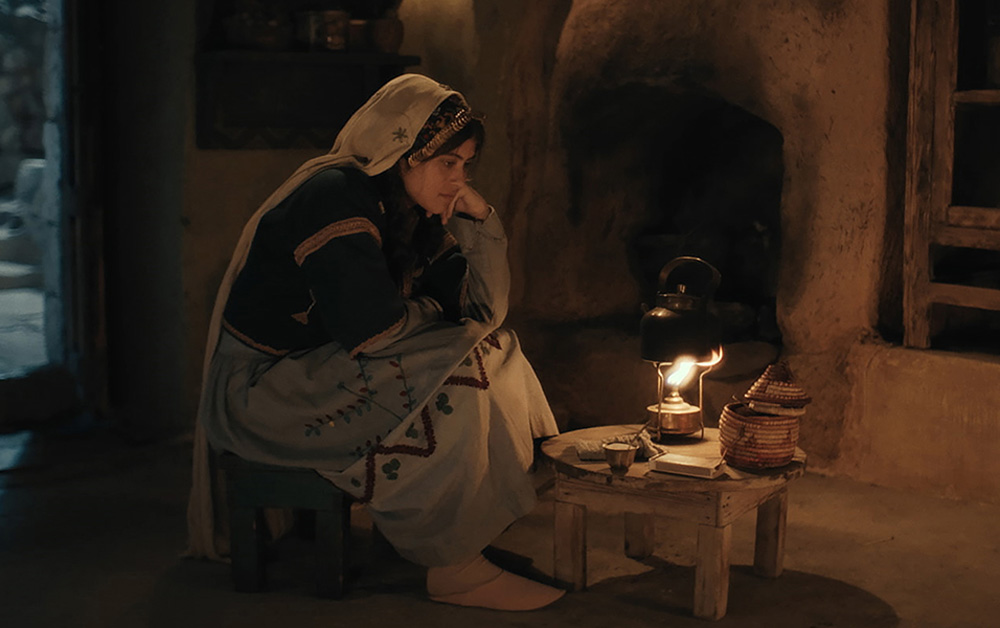There’s some cruel coincidence in the fact that Farha (Karam Taher) finds herself only able to hear what’s going on outside in the film that takes her name, tucked away in safety by her father Kamel (Ashram Barhom), the mayor of a small village in Palestine that finds itself under siege. After angering local emissaries eager to set up in the village for war while English troops patrol the contested territory in 1948 in an effort to keep peace locally, Kamel makes the equally difficult decision to place his daughter in an underground bunker where presumably no one will think to look, protecting her from bullets perhaps, but not from the fear of the unknown. Still, for Farha, it’s not that much of an adjustment when she’s rarely been allowed to dictate her future, often listening from afar as others make plans for her.
In hiding, Farha’s true character comes out in Darin J. Sallam‘s debut feature, which spends just enough time outside to let you know what’s going on within once its lead is consigned to simply observing what’s going on beyond the walls of her bunker. Subsisting on pickle juice from fermentation jars and a box of potatoes that’s been left behind, she spies on the town square through a crack in the door as various actors in the ongoing strife pass by. The worst of humanity is on display as families are killed in front of her by soldiers just following orders and any innocence she had is drained from her, impressively modulated in a gripping turn from Taher, but Sallam makes it possible for what you see at the start to linger in the background, a young woman who had hoped to get an education and thought her greatest conflict would be to convince her father to send her to the city for school.
You know Sallam is up to something different than you might expect when violence breaks out and Farha insists on staying, much to her father’s dismay and the film’s intricate structure may be most immediately apparent in how “Farha” remains dynamic once it settles into one location, but to get there, the foundation for what could’ve been comes alive as Farha may be eager to avoid a traditional path of marriage, but less inclined to disappoint her father and Kamel, who would seem not to encourage independence but is revealed to be savvy in how he shows emotion so to reap the benefits of having a poker face – after all, even if his mayorship comes from a longtime stewardship of the land, he is a political figure. The subtle shift from a more classical filming style to more modern compositions and color palette is cleverly done, growing more sophisticated as Farha is in her perspective of the world, but also more brutal and while survival is obviously a driving source of tension, the cost of living with the experience increasingly takes over and if anything, the ability of “Farha” to observe multiple things at once as its characters factor in so many considerations into their thinking becomes truly illuminating.
“Farha” will screen at the Toronto Film Festival on September 14th in person at the TIFF Bell Lightbox at 8 pm and virtually at 9 pm, available to Canada and will show once more virtually on September 18th at 1 pm.




